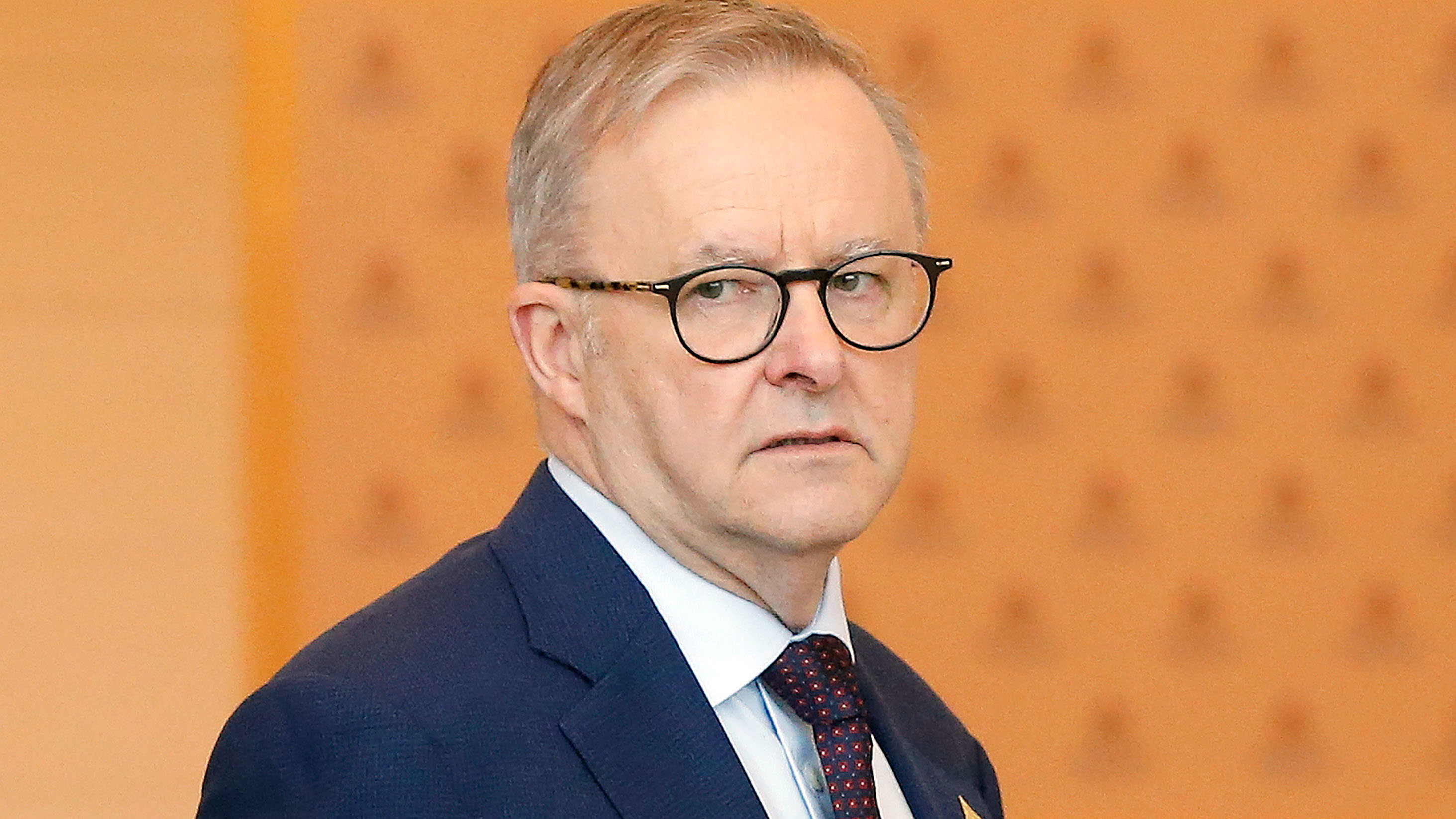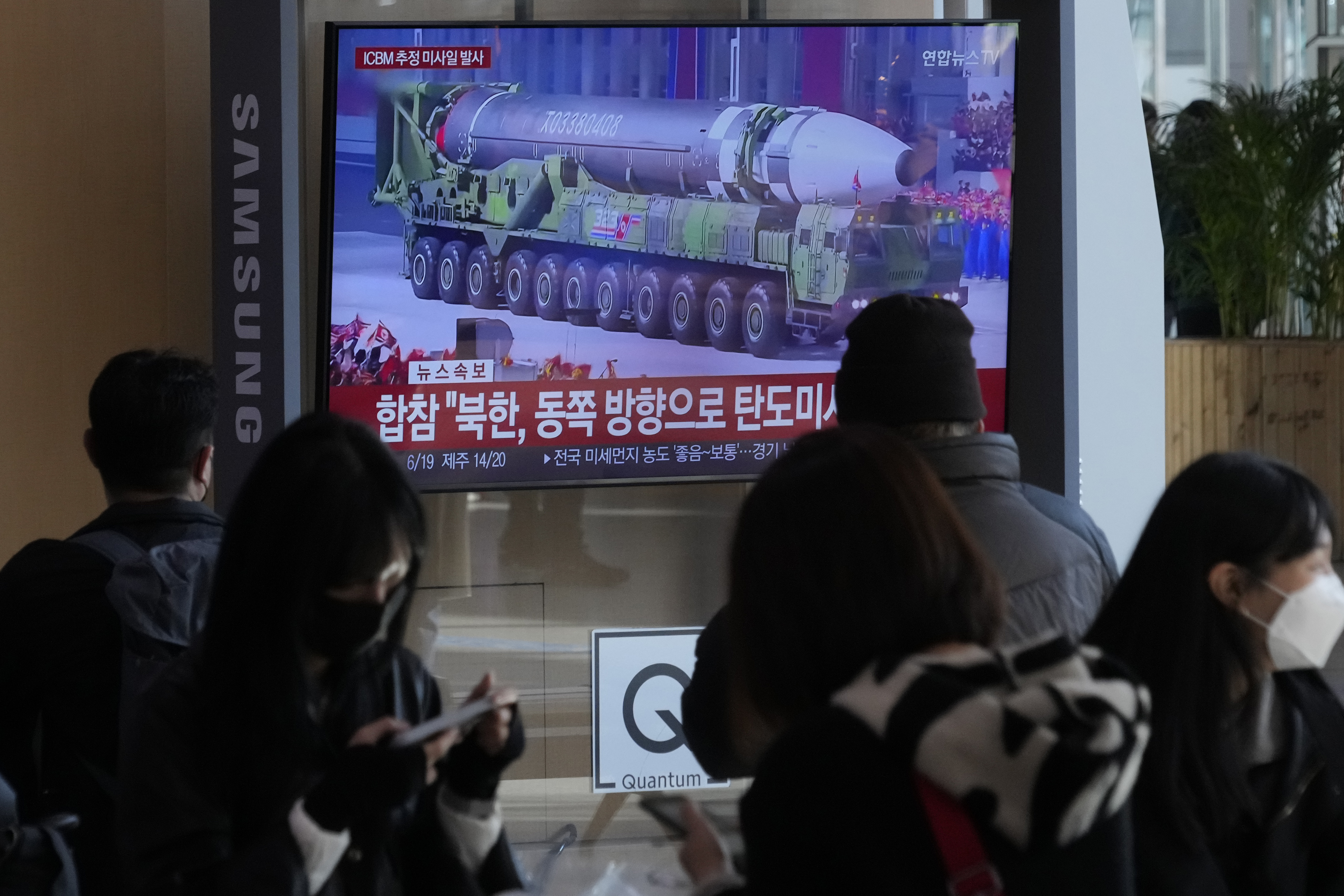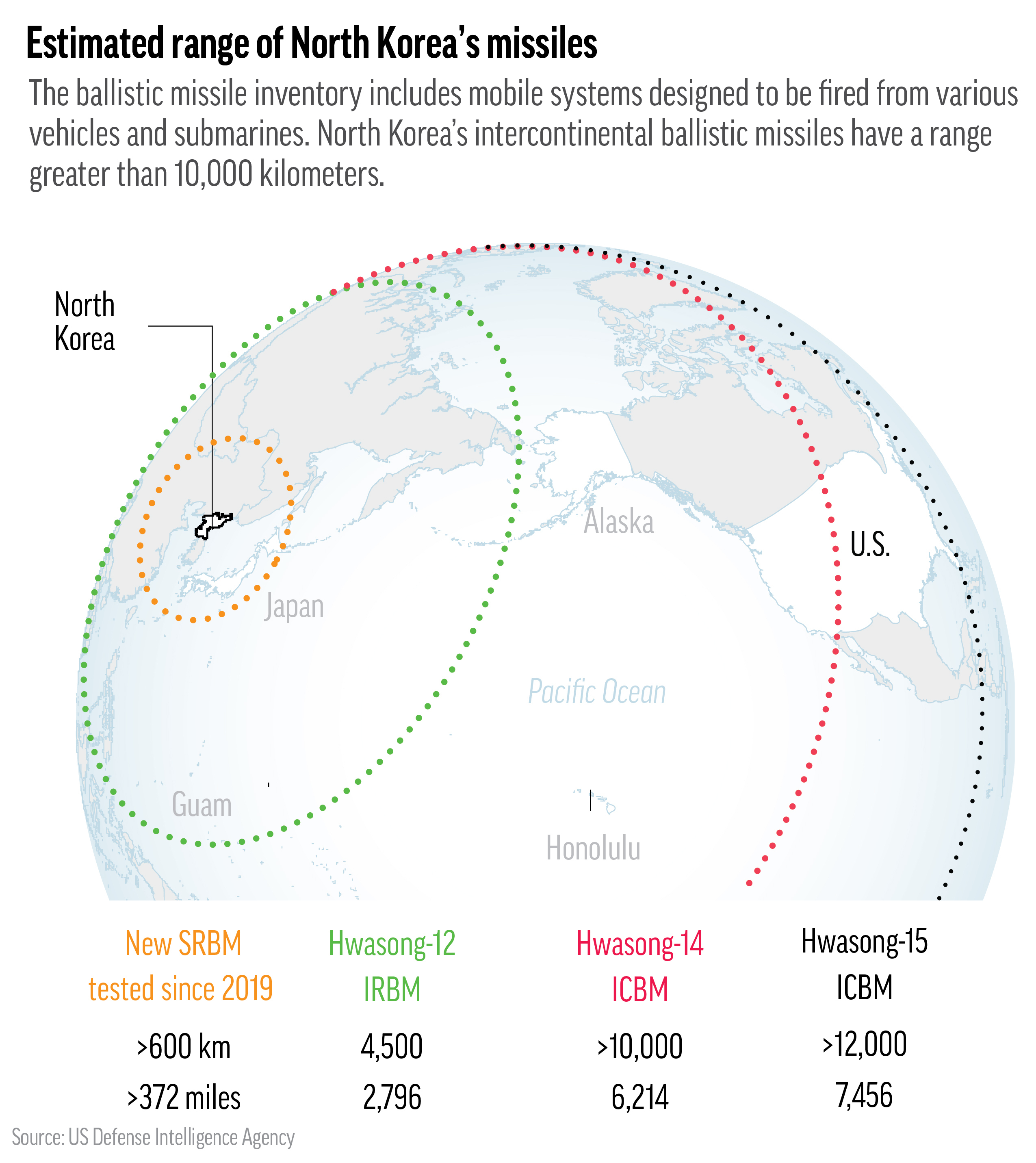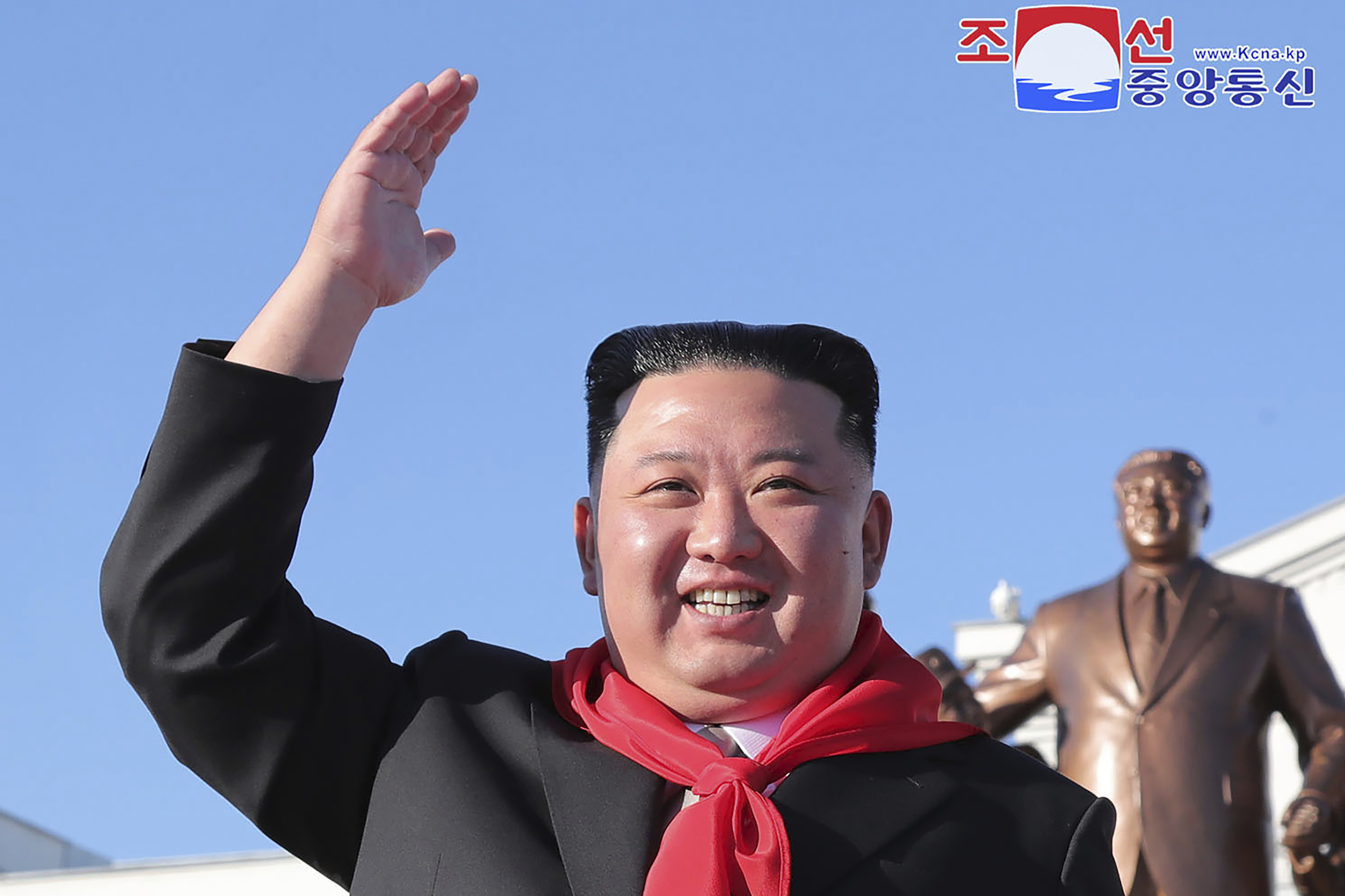Prime Minister Anthony Albanese has joined global leaders to condemn North Korea following its latest long-range missile test, calling for an emergency session of the United Nations Security Council.
Pyongyang fired an intercontinental ballistic missile on Friday that landed near Japanese territorial waters, its neighbours said – the second such major weapons test this month that shows its determination to perfect weapons systems targeting the US mainland.
Following the launch, US Vice-President Kamala Harris convened a meeting during the APEC summit in Bangkok, which was attended by Japanese Prime Minister Fumio Kishida, South Korean President Yoon Suk Yeol, Canadian Prime Minister Justin Trudeau and New Zealand Prime Minister Jacinda Ardern.
Albanese labelled the actions reckless and destabilising, and called on the Security Council to condemn North Korea.
READ MORE: Aussie academic reunited with family after 21 months in Myanmar jail
"North Korea has launched an unprecedented launch of multiple ballistic missiles," he said.
"This is recklessly threatening our security, it's destabilising our region, and in particular, it's causing trauma for the people of Japan, and the people of the Republic of Korea …
"Australia supports the convening of an emergency session of the United Nations Security Council to deal with this issue. We clearly condemn this action, and we'll consider what further action is required.
"To be clear, one of the things that we talked about in the meeting was the nature of these missiles is that they are long-range, intercontinental ballistic missiles, that threaten the security of the entire region."
Albanese also said the missiles appeared to have landed inside Japan's exclusive economic zone.
"This test, it would appear, has landed in Japan's EEZ," he said.
"It is one of multiple launches, it wasn't just one missile this morning. And there has been increasingly an escalation of North Korea's activity, and it needs to be called out.
"It needs to be condemned, and the globe needs to act on this."
The launch was the latest in a barrage of weapons tests that North Korea has conducted in recent months in response to what it calls US hostility.
Some experts say the North is able to perform such a spree of weapons tests partly because China and Russia have opposed US moves to toughen sanctions on North Korea.
READ MORE: Part of foot discovered in Yellowstone hot spring identified
The South's Joint Chiefs of Staff said it detected the suspected ICBM launch from North Korea's capital region at 10.15am (12.15pm AEDT) and the weapon flew toward the North's eastern coast across the country.
The statement said South Korea's military bolstered its surveillance of North Korea and maintains readiness in close coordination with the United States.
The Japanese Defense Ministry also initially identified the weapon as an ICBM-class ballistic missile.
Japanese Prime Minister Kishida, visiting Bangkok to attend a regional summit, told reporters it was believed to have landed at sea inside Japan's exclusive economic zone west of Hokkaido, Japan's main northern island.
According to South Korean and Japanese estimates, the missile flew 1,000 kilometres with a maximum altitude of 6,000-6,100 kilometres.
Japanese Defense Minister Yasukazu Hamada said that depending on the weight of a potential warhead, the missile had a range exceeding 15,000 kilometres, "in which case it could cover the entire mainland United States."
The incident was North Korea's first ICBM launch in about two weeks. Experts said an ICBM launched by North Korea on November 3 failed to fly its intended flight and fell into the ocean after a stage separation.
READ MORE: Mass exodus at Twitter after workers reject Musk's 'hardcore' demands
The November 3 test was believed to have involved a developmental ICBM called Hwasong-17.
North Korea has two other types of ICBM — Hwasong-14 and Hwasong-15 — and their test-launches in 2017 proved they could potentially reach parts of the US homeland.
The Hwasong-17 has a longer potential range than the others and its huge size suggests it's designed to carry multiple nuclear warheads to defeat missile defence systems.
Some experts say the November 3 test showed some technological progress in the development of the Hwasong-17, given that in its earlier test in March, the missile exploded soon after liftoff.
"North Korea has been repeatedly firing missiles this year at an unprecedented frequency and is significantly escalating tensions on the Korean Peninsula," Japanese Defense Minister Yasukazu Hamad told reporters.
South Korea's presidential office said it convened an emergency security meeting to discuss the North Korean launch.
North Korea had halted weapons launches for about a week before it fired a short-range ballistic missile on Thursday.
Before Thursday's launch, the North's foreign minister, Choe Son Hui, threatened to launch "fiercer" military responses to the US bolstering its security commitment to its allies South Korea and Japan.
Choe was referring to President Joe Biden's recent trilateral summit with his South Korean and Japanese counterparts on the sidelines of a regional gathering in Cambodia.
In their joint statement, the three leaders strongly condemned North Korea's recent missile tests and agreed to work together to strengthen deterrence.
Biden reaffirmed the US commitment to defend South Korea and Japan with a full range of capabilities, including its nuclear arms.
READ MORE: COVID-19 hospitalisations rising in fourth wave
Choe didn't say what steps North Korea could take but said that "the US will be well aware that it is gambling, for which it will certainly regret".
Pyongyang sees the US military presence in the region as proof of its hostility toward North Korea. It has said its recent series of weapons launches were its response to what it called provocative military drills between the United States and South Korea.
There have been concerns that North Korea might conduct its first nuclear test in five years as its next major step toward bolstering its military capability against the United States and its allies.
North Korea has been under multiple rounds of UN sanctions over its previous nuclear and missile tests. But no fresh sanctions have been applied this year though it has conducted dozens of ballistic missile launches, which are banned by UN Security Council resolutions.
That's possible because China and Russia, two of the UN council's veto-wielding members, oppose new UN sanctions.
Washington is locked in a strategic competition with Beijing and in a confrontation with Moscow over its invasion of Ukraine.
Source: 9News






